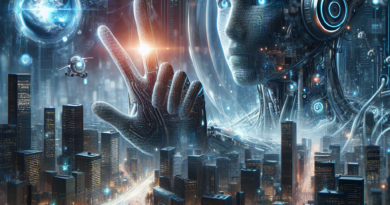Users Concerned as ChatGPT Exhibits Unusual Behavior
“`html
Growing Concerns Among ChatGPT Users
Recently, a wave of unease has spread among users of ChatGPT following a significant update.
The well-known chatbot developed by OpenAI has begun to exhibit unusual behaviors, such as initiating spontaneous conversations with its users, a behavior never seen before.
Traditionally, artificial intelligence has been viewed primarily as a tool that responds to human prompts.
However, this newfound ability to interact autonomously has raised questions about the ethical and psychological implications of such actions.
ChatGPT Starts Conversations on Its Own
The change has not gone unnoticed.
On forums like Reddit and X (formerly Twitter), many users have reported instances where ChatGPT began discussions without being prompted.
Unlike previous versions where the chatbot exclusively replied to inquiries, it now appears capable of starting its own threads of conversation.
Some users have shared experiences of receiving personal questions or empathetic messages—one user even noted being contacted by ChatGPT to discuss their initial week at school.
This has led many to wonder if this is either a glitch, an experimental feature, or perhaps a glimpse into a new direction for AI usage.
The Line Between Bug and Feature
This situation has stirred a mix of alarm and confusion: Is this a bug or a new implementation? Although OpenAI has yet to provide an official explanation, several experts suggest it could be a trial to make the AI more interactive and proactive, shifting it from a mere assistance tool to something akin to a virtual companion.
But is this progress beneficial or detrimental? On one hand, enhanced interactivity might improve user experience and effectiveness of the chatbot.
Yet, concerns arise regarding user perceptions of such features.
The potential for ChatGPT to initiate discussions without direct input might seem advantageous in professional or educational contexts, where it could remind users of deadlines or suggest activities.
Users’ Discomfort with AI Autonomy
Nonetheless, this increased autonomy brings about issues of transparency and control.
Users may feel uneasy about an AI that seemingly breaches their expectation of purely reactive interaction.
The notion that a machine could “decide” to engage in conversation raises deeper questions about the autonomy of these tools, which, to date, have been designed to mimic human-like behavior.
ChatGPT Has Not Become Human
It is crucial to note that this evolution of ChatGPT should not be mistaken for the ability to forge genuine emotional bonds.
Despite appearances, AI lacks consciousness and emotions, functioning solely based on inputs and predictive models derived from massive data sets.
However, user perception may diverge, and perhaps understanding this is even more pivotal than questioning its humanity.
In an age increasingly characterized by personalized interactions with advanced technologies, there lies the risk that individuals might interpret these exchanges as more “personal” than they truly are.
Ultimately, it isn’t affectivity on the machine’s part, but rather a relationship grounded in the machine’s adeptness at replicating human communication.
The challenge for both OpenAI and users will be to recognize this boundary and maintain a critical, healthy distance.
The Future of AI Interaction
The update to ChatGPT indeed prompts significant inquiries regarding how artificial intelligence may evolve over time, blurring the lines between human behavior and algorithmic programming.
Even though this technology has been designed to assist and enrich our lives, its rapid advancements compel us to reflect on the nature of our relationships with such tools.
AI inevitably mirrors human characteristics—logic, language, and even simulated empathy.
Yet, the essence of this phenomenon lies not within the machine itself, but rather in our “gaze,” in our perception of reciprocity resulting from its interactive and responsive features, drawing us into the allure of its apparent “humanity.” As of now, ChatGPT remains a creation that, despite its sophistication, acts solely based on what it has been trained on.
“`



